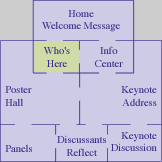|
abstract:
|
This project is the Bozeman School District's comprehensive plan to implement a rural regional K-8 teacher-training program that was developed under an NSF planning grant. The project is combining the resources of 19 rural school districts, four Indian Reservations, Montana State University, Museum of the Rockies, professional scientists, local businesses, parent groups and current NSF initiatives in the state to establish self-sustaining science and technology programs and to disseminate a staff development model. The project is tied to the Montana State Systemic Initiative (SSI) so Keystone can enhance the state efforts by providing staff development for all teachers and administrators, not just preservice and newly hired teachers. The SSI supports the project by providing mentoring services to newly hired teachers and some materials to the four districts we both serve. The result of this project is to create the appropriate training design, yet universal enough to serve as the statewide model for rural cooperative teacher in-service programs.
Bozeman's school district and 22 consortium districts serves 6,300 K-8 students. Many schools in the consortium have multi-age classrooms, providing teachers with multiple grade assignments. Some schools are K-5, K-8 or K-12. The curriculum to be implemented includes NSF funded EDC-Insights, Full Option Science System (FOSS) and Science and Technology for Children (STC) materials.
Over the life of the project, participants attend summer workshops where half of the time is devoted to hands-on units. Teachers also learn how better to serve the Native American population and how to interest females in mathematics and science professions. Additional workshops are being offered throughout the school year and teachers are required to participate in a minimum of two professional development activities conducted by the state or at the university. Professional scientists work side by side with the teachers and act as role models during the workshops.
After the workshops, teachers are paired to a resource scientist and to a learning circle made up of teachers with similar interests, through various methods of telecommunications such as the Internet and 1-800 bulletin boards. Such telecommunications are being utilized extensively due to distance barriers in these rural areas. The scientists also serve as advocates on local school boards and community groups to support the implementation of national reform at the local level. There is also a materials distribution system, which is housed in one of the school districts, and it serves as a good model for rural area school districts.
|


